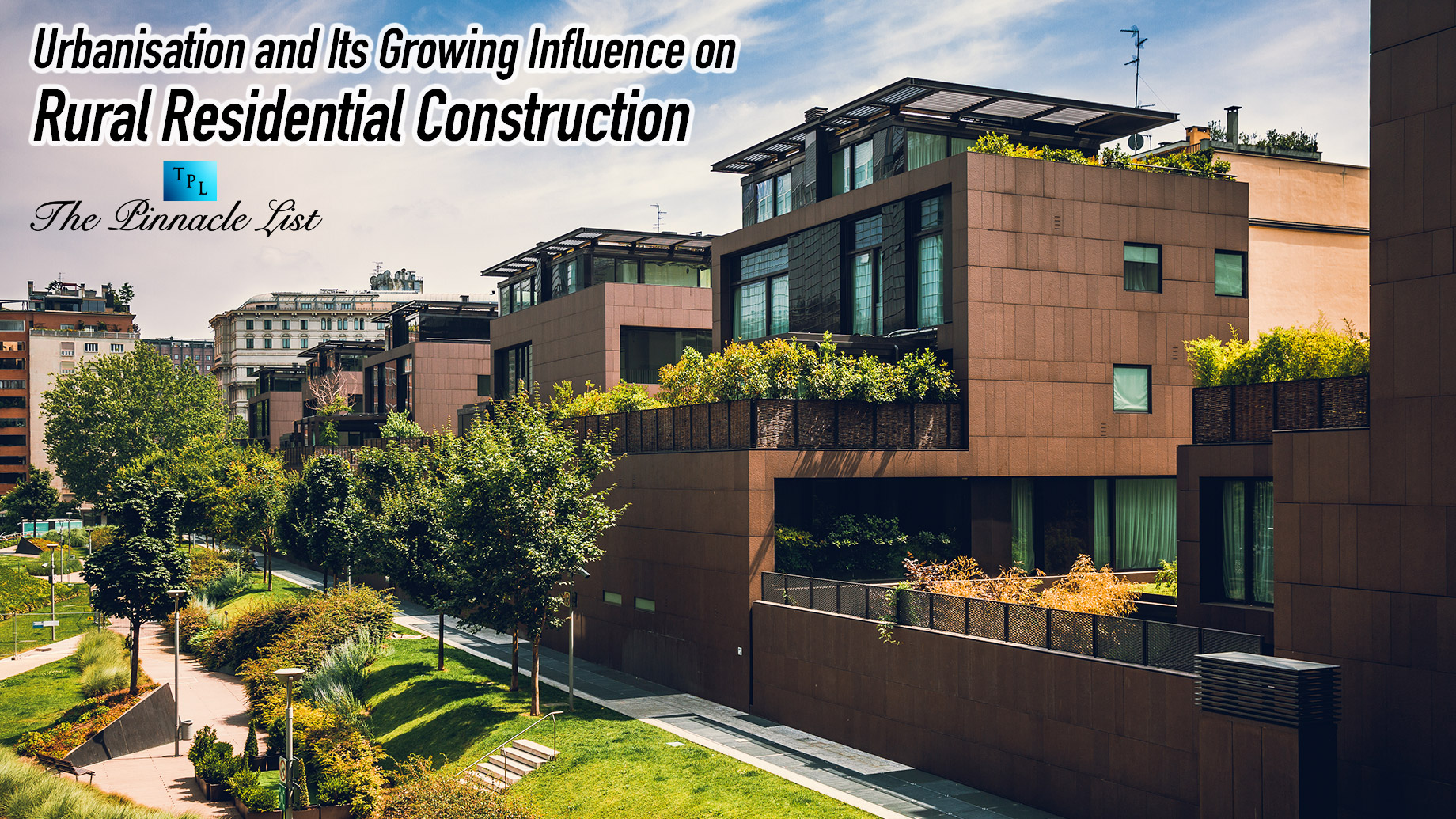
Urbanisation is reshaping the way we live, work, and build. While traditionally concentrated in cities, its ripple effects are increasingly felt in rural areas, particularly in residential construction. As more people migrate from urban centres to the countryside in search of space, affordability, and a better quality of life, the demand for homes in these regions is surging. For residential builders, this shift presents unique challenges and opportunities.
Changing Demographics and Housing Demands
The flow of urban populations into rural areas is altering the demographics of these regions. Formerly dominated by older residents or agricultural workers, rural communities are now welcoming younger families, professionals, and retirees who bring with them urban expectations for design and amenities.
Builders in these areas are tasked with delivering homes that cater to diverse preferences. While some buyers may favour traditional designs that blend with the rural aesthetic, others demand modern features such as energy-efficient technologies, open-concept layouts, and smart home integrations. Meeting these varied needs requires flexibility, careful planning, and often the adoption of tools like a construction management platform to stay organised and efficient.
Infrastructure and Development Challenges
Urbanisation in rural areas brings with it a need for improved infrastructure. Roads, utilities, schools, and healthcare facilities must expand to support growing populations. For builders, this can mean delays in securing permits, navigating zoning changes, or coordinating with utility companies for essential services like water, electricity, and internet.
A well-planned construction management platform can help builders stay on top of these complexities. By tracking timelines, organising documentation, and facilitating communication with stakeholders, these platforms ensure that projects remain on schedule despite external challenges.
The Rise of Suburban-Like Communities
As rural areas adapt to accommodate urban migrants, we are witnessing the rise of suburban-style developments in traditionally pastoral settings. These planned communities often include rows of homes, parks, and even retail spaces. While they meet the demands of incoming residents, they also raise concerns about preserving the rural character of the region.
Builders must strike a delicate balance between providing modern conveniences and respecting the natural environment. Sustainable building practices, such as using eco-friendly materials and minimising land disruption, are essential. Technology, including a robust construction management platform, can assist builders in adhering to sustainability goals while keeping projects on track.
The Cost Implications for Builders and Buyers
The influx of urban demand into rural areas has driven up property values and construction costs. Builders face higher expenses for land acquisition, materials, and labour. At the same time, affordability remains a priority for many rural buyers, who may not have the same financial resources as urban dwellers.
To bridge this gap, builders need to optimise their operations. Efficient project management, bulk purchasing of materials, and collaboration with local suppliers can help control costs. A construction management platform enables builders to identify cost-saving opportunities, track expenditures, and manage budgets with precision, ultimately benefiting both the builder and the buyer.
Environmental Considerations
Urbanisation’s impact on rural areas isn’t just economic—it’s environmental. Increased development can lead to habitat loss, soil erosion, and strain on local water resources. Builders who prioritise eco-conscious practices can help mitigate these effects.
Incorporating renewable energy options, designing homes with energy efficiency in mind, and preserving green spaces are all ways to minimise the environmental footprint of new developments. Tools like a construction management platform allow builders to track and report on these sustainability efforts, which can also serve as a selling point for environmentally conscious buyers.
Opportunities for Rural Builders
Despite the challenges, urbanisation brings significant opportunities for residential builders in rural areas. The demand for housing creates a steady pipeline of projects, while new residents often bring higher expectations and budgets than traditional rural buyers. Builders who adapt to these shifts stand to thrive.
By leveraging a construction management platform, builders can streamline their workflows and improve client communication. These tools enable builders to provide transparency, manage multiple projects simultaneously, and deliver consistent results. Builders who embrace technology will not only meet current demand but also position themselves for long-term success as rural markets continue to grow.
Looking Ahead
Urbanisation in rural areas is not a passing trend. As remote work becomes more common and people continue to prioritise space and affordability, the demand for housing in rural regions will persist. Builders must be proactive, adapting their strategies to meet the needs of a changing demographic while navigating the unique challenges of these areas.
Using tools like a construction management platform can make all the difference. From staying organised amidst infrastructure delays to tracking sustainability goals, these platforms are indispensable for builders striving to remain competitive in a rapidly evolving landscape.
The rural construction boom is a testament to the resilience and adaptability of the building industry. By embracing innovation and respecting the natural and cultural heritage of rural areas, builders can create homes and communities that serve the needs of today while preserving the legacy of tomorrow.